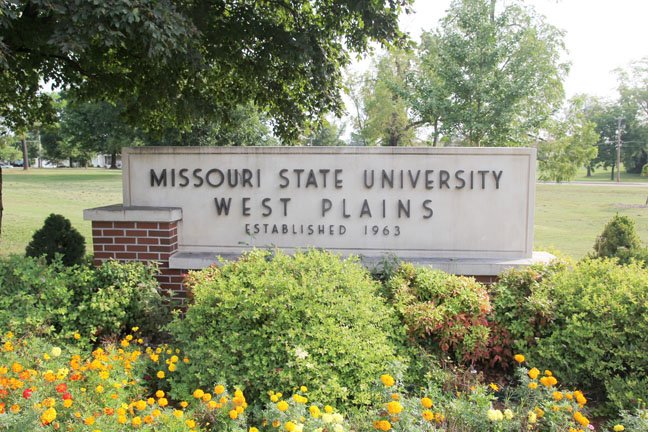WEST PLAINS, Mo. – Missouri State University-West Plains (MSU-WP) will receive $960,000 in Workforce Opportunity for Rural Communities (WORC) grant funding to support its new Advanced Fabrication Technology program.
The grant, announced Tuesday, Sept. 29, by U.S. Senator Roy Blunt (R-MO), was awarded through the partnership between the U.S. Department of Labor’s (DOL) Employment and Training Administration (ETA) and the Delta Regional Authority’s (DRA) Delta Workforce Program. The grant runs from October 2020 through June 2023.
“Receiving this grant is a critical piece of MSU-WP’s next step in providing training in the advanced skill sets needed by workers employed by our industry partners,” Interim Chancellor Dennis Lancaster said. “In particular, the grant will fund an advanced fabrication and welding program and assist in funding the development of a Level 3 weld lab on our campus.”
University officials will use a portion of the funds to purchase welding and fabrication equipment and supplies to create the weld lab, said Sheila Barton, director of workforce development programs at MSU-WP. Funds also will be used to hire a full-time welding instructor and career services coordinator to assist with job placement, she added.
The Advanced Fabrication Technology program can be completed as a stand-alone, 24-credit-hour certificate program in two semesters or as an option of the Associate of Applied Science in Technology degree in two years.
The program will prepare students for careers in advanced fabrication and welding by focusing on such skills as structural design and fabrication, automated systems, and robotic arc welding, all of which are in high demand, she said.
“Machine manufacturing, industrial maintenance, welding and fabrication rank among the top five careers for Missouri, and the need for technicians in manufacturing, maintenance and advanced welding is expected to increase 43% by 2026,” Barton explained.
“In the MSU-WP service area, 12 manufacturers report they currently have 200 openings for welders, fabricators, CNC and maintenance technicians, and many said they expect to hire an additional 500 over the next four to six years,” she added.
“These programs will create a pipeline of qualified candidates for local and regional employers, provide training for underrepresented groups, rebuild our communities with a trained workforce, provide sustainable living wages for families and encourage local industry expansion,” Barton said.
“The next generation of welding technology, used by welding technicians, incorporates machine joining, automatic joining and automated joining through the use of robotic arc welding; this is the vision of the Advanced Fabrication Technology program,” added Jim Hart, assistant professor of computer information systems and technology.
“The value added to learning by the equipment provided through this DOL grant, as it has been described, will continue to improve the Technology program as it develops into an incubator of opportunities for our community,” Hart said. “As more students are added to our programs, students with abilities will be discovered who will explore the solutions we need to solve the problems of today, as well as in the future, while fulfilling the technician needs of today.”
ETA officials awarded grants to projects focused on areas hard hit by economic transition and recovering more slowly, according to a DRA news release. Selected projects are innovative and sustainable strategies providing needed career, training and support services to eligible individuals, which will assist in meeting workforce challenges and industry needs currently underserved by other resources.
Authorized by the Workforce Innovation and Opportunity Act, WORC Initiative grants take a long-term view toward assisting eligible communities in diversifying their economies and expanding and diversifying partnerships by investing in local strategies developed by regional partners. ETA awardees align and integrate workforce development activities with state, regional or community development strategies.
“Workforce development programs are an invaluable tool for helping people get the skills they need to earn a good living, take care of their families and get ahead,” Blunt said in the news release announcing the grant. “The Workforce Opportunity for Rural Communities program is creating more opportunities by providing reemployment and training assistance in areas where they’re needed most. As chairman of the appropriations subcommittee that started and funds this program, I’ll continue prioritizing resources for initiatives, like this one, that boost economic growth in rural areas.”
Blunt serves as chairman of the Senate Appropriations Subcommittee on Labor, Health and Human Services, Education and Related Agencies. As chairman, he started the WORC Initiative in 2018 and has worked to include funding for the program in subsequent Labor/HHS appropriations bills.
“We can’t thank enough the Delta Regional Authority, the U.S. Department of Labor, our industry partners and supporters, as well as Senators Blunt and Josh Hawley (R-Mo.) and Congressman Jason Smith (R-Mo.) for their vocal support of this program and their commitment to workforce development for our area, state and nation,” Lancaster said.
Classes specific to the Advanced Fabrication Technology program will be offered beginning with the 2021 fall semester, Hart said. Students can get a jump start on the program, however, by enrolling in Math for the Trades (TEC 101) and Print Reading and Basic CAD (TEC 110) during the 2021 spring semester.
For more information about this or other educational programs offered by MSU-WP, visit the university’s website, wp.missouristate.edu.





